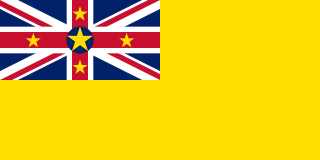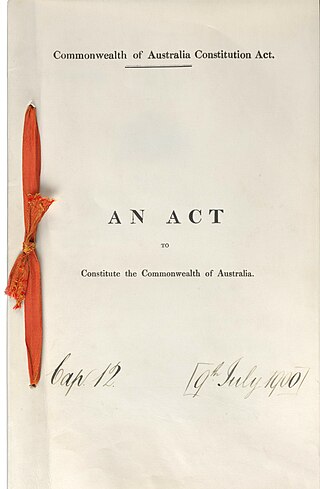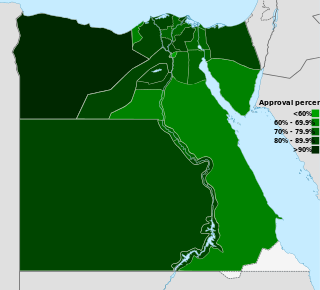
The Judicial Committee of the Privy Council (JCPC) is the highest court of appeal for the Crown Dependencies, the British Overseas Territories, some Commonwealth countries and a few institutions in the United Kingdom. Established on 14 August 1833 to hear appeals formerly heard by the King-in-Council, the Privy Council formerly acted as the court of last resort for the entire British Empire, other than for the United Kingdom itself.

Niue is a self-governing island country in free association with New Zealand. It is situated in the South Pacific Ocean and is part of Polynesia, and predominantly inhabited by Polynesians. The island is commonly referred to as "The Rock", which comes from the traditional name "Rock of Polynesia".

The politics of Niue take place in a framework of a parliamentary representative democratic dependency, whereby the Chief Minister is the head of government, and of a non-partisan system. Niue is self-governing in free association with New Zealand and is fully responsible for internal affairs. New Zealand retains some responsibility for external affairs, in consultation with Niue. The Niue Constitution Act 1974 (NZ) vests executive authority in His Majesty the King in Right of New Zealand and the Governor-General of New Zealand. The constitution specifies that in everyday practice, it is exercised by a Cabinet of the Premier of Niue and three other ministers. The premier and ministers must be members of the Niue Assembly, the nation's legislative assembly. The Judiciary is independent of the executive and the legislature.
An associated state is the minor partner or dependent territory in a formal, free relationship between a political territory and a major party—usually a larger nation.
The Eighth Amendment of the Constitution Act 1983 was an amendment to the Constitution of Ireland which inserted a subsection recognising "the equal right to life of the pregnant woman and the unborn". Abortion had been subject to criminal penalty in Ireland since at least 1861; the amendment ensured that legislation or judicial interpretation would be restricted to allowing abortion in circumstances where the life of a pregnant woman was at risk. It was approved by referendum on 7 September 1983 and signed into law on 7 October 1983. In 2018, it was repealed by referendum.

The Fifteenth Amendment of the Constitution Act 1995 is an amendment of the Constitution of Ireland which removed the constitutional prohibition on divorce, and allowed for the dissolution of a marriage provided specified conditions were satisfied. It was approved by referendum on 24 November 1995 and signed into law on 17 June 1996.

The Realm of New Zealand is the area over which the monarch of New Zealand is head of state. The realm is not a federation but is a collection of states and territories united under its monarch. New Zealand is an independent and sovereign state that has one territorial claim in Antarctica, one dependent territory (Tokelau), and two associated states. The Realm of New Zealand encompasses the three autonomous jurisdictions of New Zealand, the Cook Islands, and Niue.

The constitution of New Zealand is the sum of laws and principles that determine the political governance of New Zealand. Unlike many other nations, New Zealand has no single constitutional document. It is an uncodified constitution, sometimes referred to as an "unwritten constitution", although the New Zealand constitution is in fact an amalgamation of written and unwritten sources. The Constitution Act 1986 has a central role, alongside a collection of other statutes, orders in Council, letters patent, decisions of the courts, principles of the Treaty of Waitangi, and unwritten traditions and conventions. There is no technical difference between ordinary statutes and law considered "constitutional law"; no law is accorded higher status. In most cases the New Zealand Parliament can perform "constitutional reform" simply by passing acts of Parliament, and thus has the power to change or abolish elements of the constitution. There are some exceptions to this though – the Electoral Act 1993 requires certain provisions can only be amended following a referendum.

A self-determination referendum was held in Tokelau between 11 and 15 February 2006, supervised by the United Nations, The proposal would have changed Tokelau's status from an unincorporated New Zealand territory to a self-governing state in free association with New Zealand, akin to the Cook Islands and Niue. However, although 60% of voters voted in favour, a two-thirds majority was required for the proposal to succeed.

The Constitution of Australia is the fundamental law that governs the political structure of Australia. It is a written constitution, that establishes the country as a federation under a constitutional monarchy governed with a parliamentary system. Its eight chapters sets down the structure and powers of the three constituent parts of the federal level of government: the Parliament, the executive government and the judicature.

The Constitution of Kenya is the supreme law of the Republic of Kenya. There have been three significant versions of the constitution, with the most recent redraft being enabled in 2010. The constitution was presented to the Attorney General of Kenya on 7 April 2010, officially published on 6 May 2010, and was subjected to a referendum on 4 August 2010. The new Constitution was approved by 67% of Kenyan voters. The constitution was promulgated on 27 August 2010.

A constitutional referendum was held in Egypt on 19 March 2011, following the 2011 Egyptian revolution. More than 14 million (77%) were in favour, while around 4 million (23%) opposed the changes; 41% of 45 million eligible voters turned out to vote.

The Constitution of Samoa is a written constitution which is the supreme law in Samoa. It establishes Samoa as a parliamentary republic with a Westminster system and responsible government. It outlines the structure and powers of the Samoan government's three parts: the executive, legislature, and judiciary.

A constitutional referendum was held in Niue on 3 September 1974. The constitution was approved by 65% of voters, and came into force on 19 October.

The judiciary of Solomon Islands is a branch of the Government of Solomon Islands that interprets and applies the laws of Solomon Islands, to ensure equal justice under law, and to provide a mechanism for dispute resolution. The legal system is derived from chapter VII, part II of the Constitution, adopted when the country became independent from the United Kingdom in 1978. The Constitution provided for the creation of a High Court, with original jurisdiction in civil and criminal cases, and a Court of Appeal. It also provided for the possibility of "subordinate courts", with no further specification (art.84).
The Thirty-third Amendment of the Constitution Act 2013 is an amendment to the Constitution of Ireland which established a Court of Appeal to sit between the existing High and Supreme Courts for the purpose of taking over most of the appellate jurisdiction of the Supreme Court. The amendment was approved by the electorate in a referendum on 4 October 2013, and then signed into law by President Michael D. Higgins on 1 November 2013.

Niue is a country in the South Pacific Ocean with an estimated population of 1,190. Since 1974, it has been self-governing in free association with New Zealand. Niue controls its own internal affairs, while New Zealand retains responsibility for its defence and external relations and is required to provide necessary economic and administrative assistance.

The chief justice of Samoa is the chief justice of the Supreme Court of Samoa. The qualifications and powers of the office are governed by Part VI of the Constitution of Samoa and the Judicature Ordinance 1961. The position is currently held by Satiu Simativa Perese.

General elections were held in Niue on 26 April 1975.

The court system of Niue is a three-tiered judicial system established by the Niue Constitution Act in the island nation of Niue. It consists of the High Court, which has original jurisdiction to hear all criminal, civil and land matters, the Court of Appeal, which has appellate civil and criminal jurisdiction, and the Privy Council in England. Justices interpret the law subject to the Constitution of Niue, and if they determine a law violates the Constitution then the Constitution takes precedence. A system of common law is used in the court system, and the Doctrine of Precedent ensures that lower courts follow the precedent of upper courts. The civil and criminal courts operate under an adversarial legal system, while the land courts operate under an inquisitive legal system.












